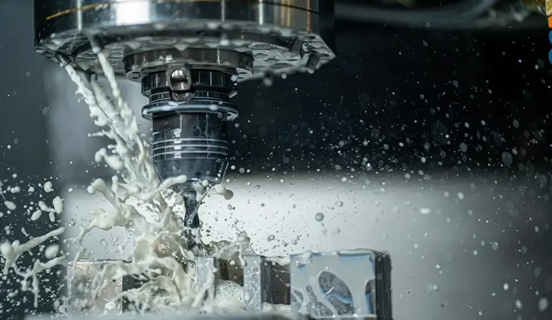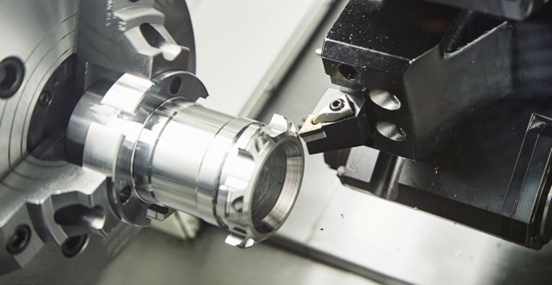News
Non-standard Mold Manufacturing: Delivering Greater Benefits and Application Value for Your Business
 date:2020-07-21
date:2020-07-21 click:
click: Non-Standard Mold Manufacturing: Delivering Greater Benefits and Value to Your Business
In today’s rapidly evolving manufacturing landscape, standardized molds can no longer meet the growing complexity and diversity of product design requirements. Non-standard mold manufacturing, with its high level of customization and flexibility, provides businesses with more precise and efficient production solutions. It is especially suited for innovative products, small-batch customization, and specialized process requirements.
Non-standard mold manufacturing involves creating molds tailored to the unique needs of customers, covering the entire process from design, engineering analysis, and process development to actual machining. This approach not only enhances mold compatibility and operational efficiency but also delivers significant benefits in product performance, production cost reduction, and faster time-to-market.
This article explores the core values, key processes, and practical application scenarios of non-standard mold manufacturing, helping you understand how it can empower your business to achieve more efficient operational goals.

What is Non-Standard Mold Manufacturing?
Non-standard mold manufacturing refers to the design and production of molds tailored to meet specific customer requirements, differing from standard mold specifications. Compared to standard molds, non-standard molds emphasize customization and adaptability, making them ideal for manufacturing products with complex structures, diverse geometries, or unique performance requirements.
During the process of non-standard mold manufacturing, manufacturers typically collaborate closely with customers to understand multiple dimensions, such as product functionality, material properties, and usage environments. Advanced precision machining techniques are then employed to ensure optimal structural and functional alignment of the mold.
Key Advantages of Non-Standard Mold Manufacturing
1. Flexibility for Complex Structures and Personalized Designs
Non-standard molds can be tailored to specific product shapes, material properties, and process flows, meeting the molding requirements of complex components or special structural parts. This flexibility is crucial for rapid product iteration and functional optimization.
2. Reduction in Long-Term Manufacturing Costs
Although the initial investment in non-standard molds is relatively high, their highly customized design enhances mold lifespan, reduces failure rates during production, and lowers maintenance and replacement costs, resulting in better long-term return on investment.
3. Shortened Time-to-Market
By collaborating with customers early in the design phase, non-standard mold manufacturers can address potential processing challenges and optimize molding efficiency. This accelerates the entire production process, enabling businesses to respond swiftly and gain a competitive edge in the market.
4. Improved Product Quality and Consistency
Non-standard molds are manufactured using precision equipment and rigorous quality control processes, ensuring dimensional accuracy, surface quality, and functional consistency of the final products. This reduces defect rates and enhances overall production quality.
Key Processes in Non-Standard Mold Manufacturing
1. Requirement Assessment and Design Input
Manufacturers engage in detailed discussions with customers to understand product functionality, process requirements, and usage scenarios, collecting essential 3D drawings, samples, and technical parameters.
2. Mold Design and Engineering Analysis
CAD/CAE software is used to create mold models and perform simulations, analyzing stress, thermal flow, and molding efficiency. This helps optimize the structural design and ensures the mold meets actual processing requirements.
3. Mold Manufacturing and Assembly
High-precision CNC machining (e.g., CNC milling, EDM, wire cutting) is employed to produce mold components, followed by assembly and trial runs to ensure stable and efficient mold operation.
4. Mold Debugging and Delivery
After trial runs, the mold undergoes production testing to optimize molding processes and parameters. Once the molding quality meets standards, the mold is delivered for formal production.
Industry Case Studies
Automotive Manufacturing
Non-standard molds are widely used in the automotive industry for manufacturing customized headlights, dashboards, bumpers, and powertrain components. They enable multi-material molding and precise control.
Consumer Electronics
In consumer electronics, where complex structures and miniaturization are prevalent, non-standard molds facilitate the mass production of high-precision components such as phone cases, earphone housings, and connector parts.
Medical Devices
The medical industry demands high product consistency and safety. Non-standard molds can be customized to meet cleanroom standards for producing disposable medical instruments and implantable components.
Home Appliances and Industrial Equipment
Non-standard molds support the production of functional housings and structural components with high strength, temperature resistance, and surface precision, catering to the needs of large industrial equipment and high-precision home appliances.
How to Choose the Right Non-Standard Mold Manufacturer?

Choosing a high-quality non-standard mold manufacturer is key to ensuring project success. Here are several expert-recommended core considerations:
Technical Capability and Equipment
Prioritize manufacturers equipped with advanced CAD/CAE design systems and high-end CNC machining equipment (such as 5-axis CNC machines and EDM machines). These directly impact mold precision and production efficiency.
Project Experience and Service Portfolio
Evaluate their track record of successful projects in relevant industries. Check if they have the capability to handle complex structures and special materials, and whether they provide one-stop services from design to delivery.
Material Selection and Quality Control
Confirm that the mold steels used possess high wear resistance and toughness, and that the manufacturer has a complete inspection system, including Coordinate Measuring Machines (CMM) and mold life tracking systems.
Lead Time and Service Assurance
Controllable delivery times and after-sales service capabilities are equally important. Choose partners who can offer fast responses, technical support, and mold maintenance services to safeguard your project.
Conclusion: Empowering Precision Manufacturing with Non-Standard Mold Manufacturing
In an increasingly refined and customized market environment, non-standard mold manufacturing has become a critical enabler for enterprises to achieve technological innovation, quality improvement, and efficiency optimization. It offers strong adaptability, flexible responsiveness, and strategic value throughout core manufacturing processes.
For business owners seeking high-performance and high-precision mold manufacturing solutions, non-standard molds are undoubtedly a worthwhile investment path.
AT Mold Manufacturing, Supporting Your Success
We have a complete non-standard mold customization process—from structural design and engineering analysis to high-precision manufacturing—focusing on high-end sectors such as automotive, medical, electronics, and industrial applications. Upload your drawings now to receive a professional evaluation and accurate quotation, and start your efficient smart manufacturing journey!
If you need content tailored for a specific industry or product, feel free to let me know—I can provide refined customized writing.



 Previous:How to Choose a Chinese Mold M
Previous:How to Choose a Chinese Mold M Back
Back